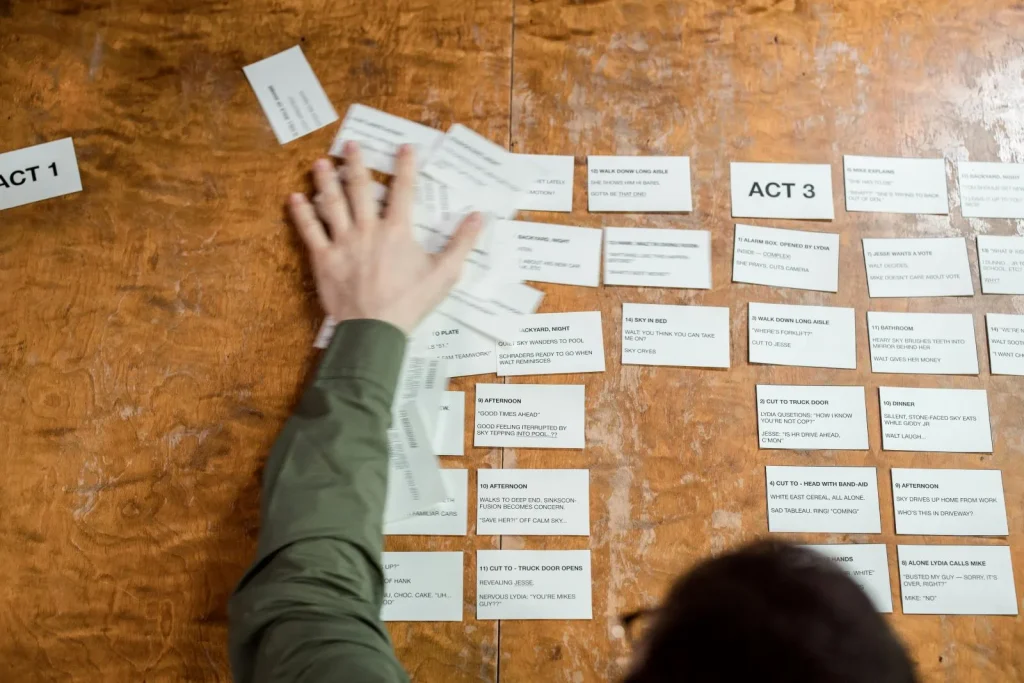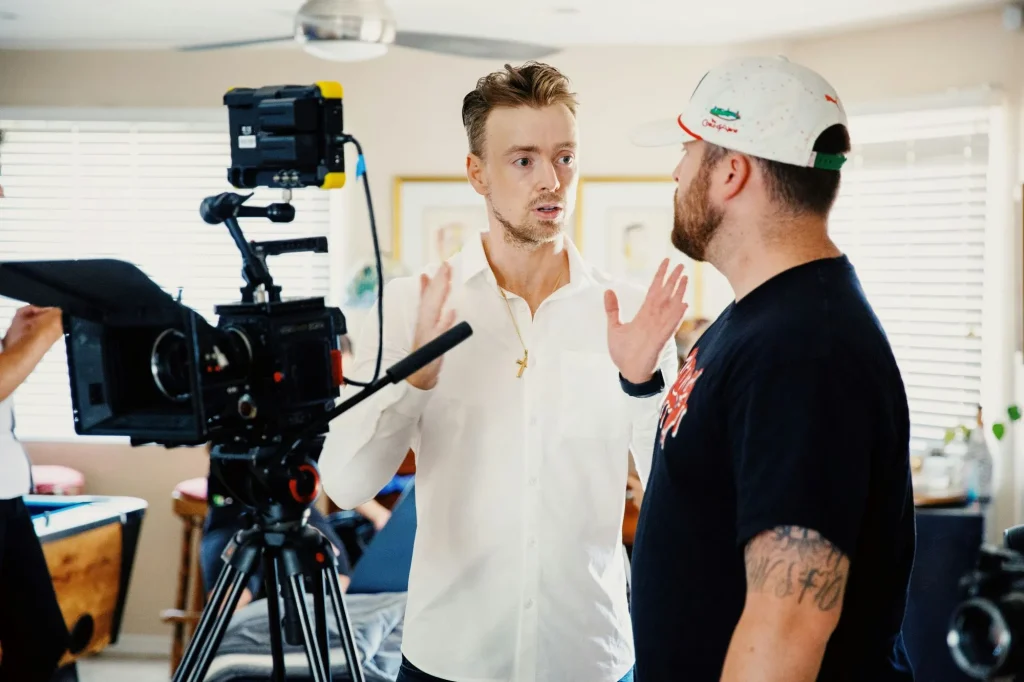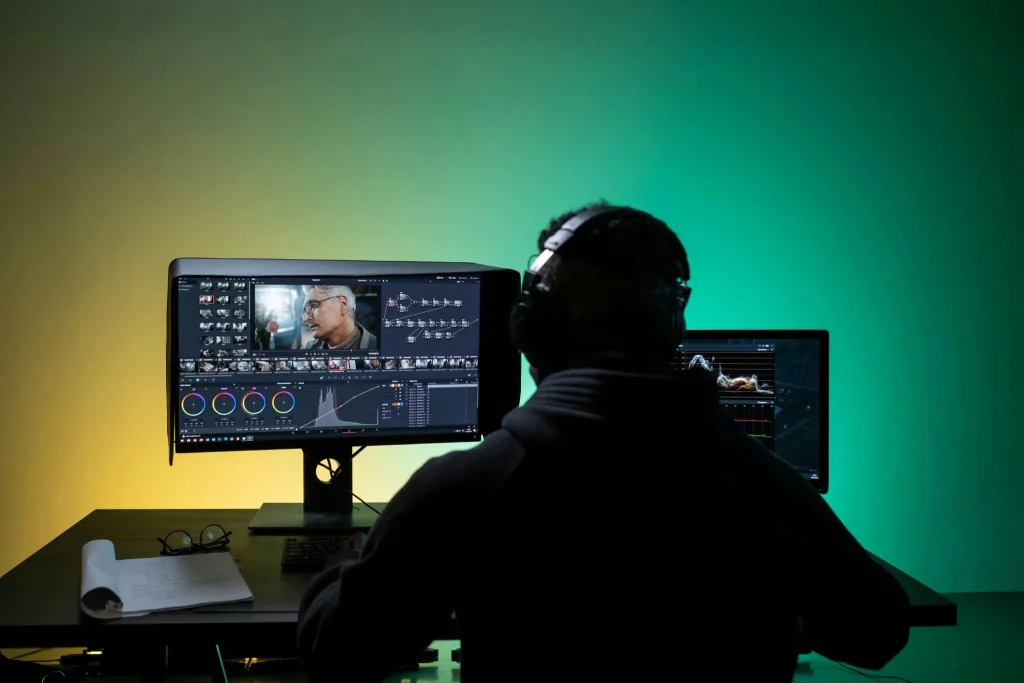Have you ever wondered how long post-production takes for a movie? Making a film is a complex process, and it can even take years to finish. Even the pre-production phase can take months before everything is ready for filming. And that is without even taking into account audio and video post-production.
In this article, we will break down the process of post-production for a film to give you a better idea of how long each of its stages will last.
How Long Does It Take to Complete Post-Production?
If you are making a movie, you should know that video post-production can take between six and twelve months to complete. But there are many other factors that will affect the length of the process.
Post-production is not the only part of movie production you’ll need to think about. As you are probably aware, there are three main stages of making movies:
- Pre-production
- Production
- Post-production
The pre-production phase is reserved for planning, polishing the script, hiring cast and crew, and ensuring everything is ready for the second phase, which is production or filming. The process of post-production can start as soon as you have scenes filmed, but it will still take a lot of time.
Filming a movie can take between one and three months. Post-production, on the other hand, can take up to a year (or even more). To save time, you can start ticking off the boxes on your post-production checklist as soon as you have a couple of filmed scenes. Working post-production parallel to production is a common practice, especially for high-budget movies.
Naturally, every movie is unique, and there is no definitive answer to how long post-production will take. But there are a few guidelines and aspects that can affect its length. Knowing this will give you enough time to prepare and plan everything accordingly during pre-production.
What Affects the Length of Post-Production?
The primary factor that influences the post-production process is how much material you have to work with. That can vary greatly depending on the genre of your film, its length, your crew’s experience, planning, the size of the team, and many other things.
For example, a documentary won’t need a lot of work when it comes to VFX, but a science fiction movie will spend the majority of time polishing special effects during post-production.
The fewer things you need to do, the less time it will take. Another important point to mention is the movie’s budget. Big Hollywood motion pictures spend tons of money polishing things in post-production, which is something indie films can’t afford.
As a result, an indie movie can spend less time in post-production due to these limitations, even if it’s in the same genre. Naturally, knowing how to do video post-production the right way will save you a lot of time.
What Is Included in Post-Production and How Long Will Each Stage Last?
The process of video post-production can include many different stages. However, it is up to the director to decide whether they want to go through all of them based on the type of film they are making.
Some stages like editing can’t be avoided, so they’re included every time. Here’s what a typical video post-production workflow looks like and how long each step can take:
1. Editing
Editing is the process of trimming and arranging scenes to create a rough cut before moving to other stages. The first thing to dictate how long this step will take is the length of the movie.
Shorter movies won’t require a lot of time to edit, while full-feature movies can take a minimum of ten weeks to complete a rough edit. And that estimate is if nothing goes wrong along the way.
Editing can take a few weeks longer if you decide to further refine your first cut before proceeding. Luckily, other teams can still do their work in the meantime.
2. Audio Post-Production
Audio post-production is usually handled by a separate team, and it can be worked on simultaneously with editing. Mixing and polishing the audio can take at least four weeks. Once again, the process will depend on the project itself, its length, and the number of revisions needed.
The engineers will have to start working on sound design, ADR, foley, and the composer can start creating the soundtrack as soon as the first shots are ready. If the movie is made in a studio, the audio quality will be much higher, making this process shorter. That will particularly be the case if actors end up not needing to re-record any lines.
3. Special Effects
The next step on the list is VFX. This stage can take a large portion of the time reserved for post-production, especially for films with lots of effects and CGI. Modern movies are often recorded in front of a green screen, which means that the team will have to animate the background and entire surroundings.
If the film has explosions, aliens, and anything else that requires special effects, the process will take even longer. For example, Guardians of the Galaxy 3 had over 3,000 visual effect shots, which were 90% of the movie. And it took multiple teams 15 months to complete post-production.
For those who don’t use any special effects, though, you might even skip this step entirely.
4. Color Correction and Grading
Once the editing is done, the team will proceed to color correction. This step can take between several weeks and a few months. It depends on the length of the movie, the number of scenes, the quality of the raw footage, and additional demands.
Color correction is one of the reasons you want to plan everything in advance. Having a clear idea from the start will help the team work faster, and they will be able to start post-production as soon as there are scenes to edit.
Color correction is a great way to create a unified feel throughout the movie, which is why it is often one of the final stages. Remember that even in the worst-case scenario, the process is much shorter than VFX.
5. Polishing
It is always smart to leave time for additional polishing and final touches during post-production. Even if you plan everything correctly, something might go wrong, and you may end up needing more time.
To avoid having tight deadlines, leave extra room for quality control. An extra month will do wonders, and it will allow your team to avoid having to work overtime to meet deadlines.
You will also get time to ensure your movie is exactly what you envisioned.
Can You Affect the Length of Post-Production?
The short answer is yes. You can affect the length of the post-production. One of the simplest ways to do it is to plan accordingly. Dedicate enough time for each of the stages and leave time for your teams to do their magic.
On top of that, investing time in pre-production and production will also influence the length of post-production. The better your scenes are, the less time you will need to polish them.
Finally, start post-production as soon as you can. Teams can start working on post as soon as the first few scenes are shot. That way, you can get an early start and have post-production flowing alongside filming. Having teams for each of the stages can also make it simpler, as they’ll need to focus on one task at a time.
Your crew’s experience will also play a pivotal role in how long post-production will take. If you don’t think your in-house team can handle all the workload effectively, you can always hire external help.
Use the Right Software and Equipment
Learning how to use an editing program can be challenging. But that isn’t something you should do during post-production. You should pick the software you are already comfortable and familiar with. Furthermore, getting the right equipment for post-production can simplify the process even further and allow you to save time.
While you don’t need to own a controller or anything other than the editing software, it is one of many ways you can shorten the length of video post-production.
Streamline Your Film’s Post-Production With Force Media
Instead of managing and optimizing your next film’s post-production process yourself, why not get some extra help? Our team at Force Media has over a decade of experience handling all aspects of post-production, including:
- Editing
- Color correction
- Sound mixing
- Scoring
- VFX
- And more…
We have dozens of projects of all sizes under our belt and would love to help your next movie shine. Get in touch with us today, and tell us more about your next film. We’d love to have a chat!


